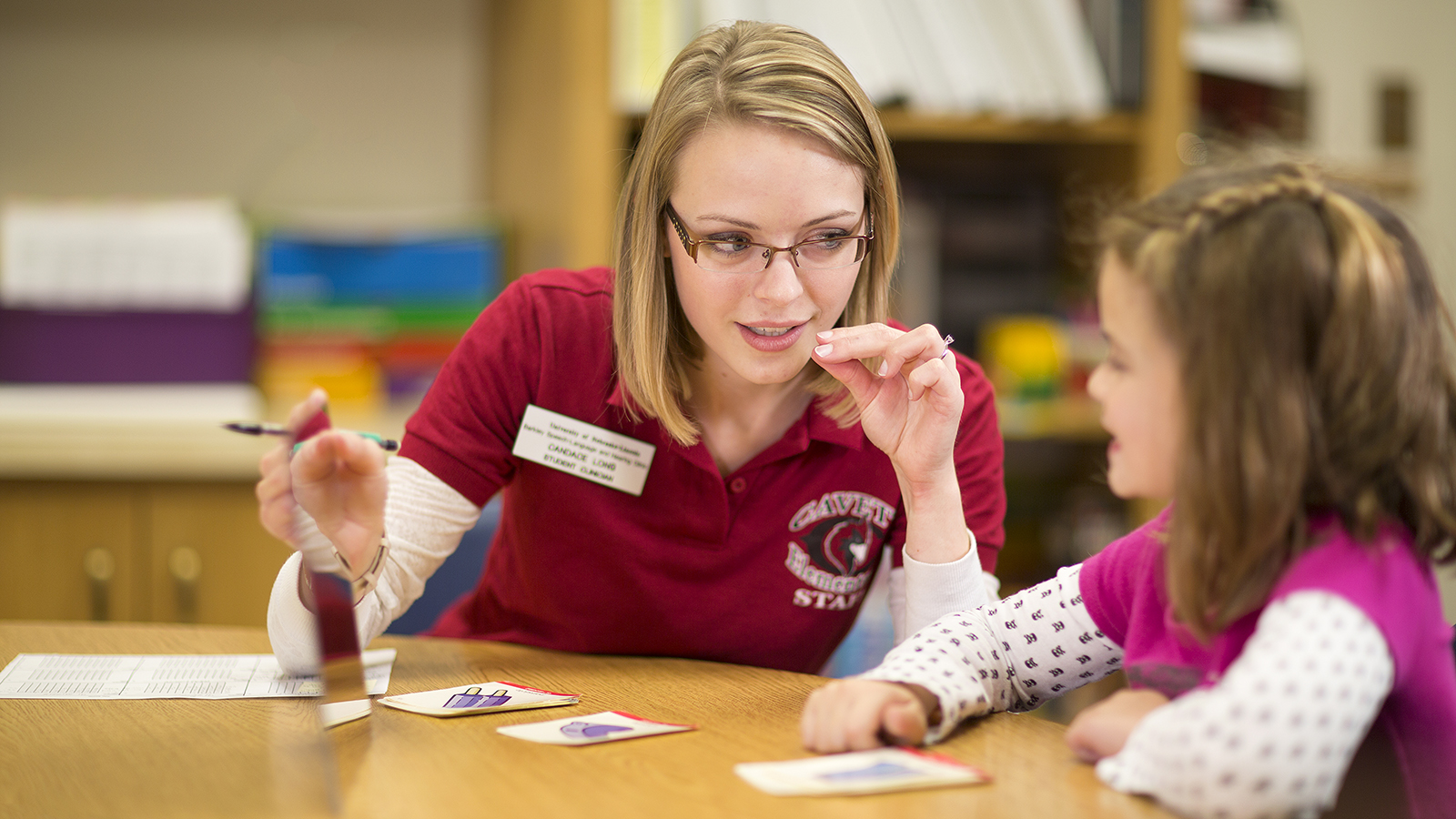
Nebraska to offer new deaf education, speech-language pathology interdisciplinary training
15 Oct 2019 By Kelcey Buck
The University of Nebraska-Lincoln is starting a new interdisciplinary graduate training project in deaf education and speech-language pathology in summer 2020 thanks to a $1 million grant from the U.S. Department of Education’s Office of Special Education Programs.
The project, known as the Mid-Plains Professional Upgrade Partnership – Interdisciplinary Preparation in Deaf Education and Speech-Language Pathology (MPUP-IP), will provide funding to a minimum of 30 master’s level students over the course of the five-year grant.
Anne Thomas, assistant professor of practice and deaf education program coordinator, and Kristy Weissling, associate professor of practice and speech-language pathology program coordinator, collaborated to develop the plan to provide interdisciplinary training between the two programs. Of the 30 students trained through the MPUP-IP project, half will be in the deaf education program and half will be in speech-language pathology.
“There is a critical shortage of professionals who serve children and youth who are deaf or hard of hearing in Nebraska and the surrounding Mid-Plains states,” Thomas said. “We want to train high-quality teachers of the deaf (TODs) and speech-language pathologists (SLPs) who are able to provide strong interdisciplinary services to improve the developmental, educational and post-secondary outcomes of students who are deaf or hard of hearing.”
The first of the three cohorts in the MPUP-IP project will begin in June 2020. Students will either pursue a master’s degree and endorsement for teaching students who are deaf or hard of hearing, or a master’s degree in speech-language pathology.
In addition to the normal required coursework for master’s degrees in each of the two program areas, students in the MPUP-IP project will complete 15 hours of interdisciplinary coursework, comprised of shared coursework and assignments, collaborative field experiences and collaborative student teaching experiences.
The grant provides 37 credits of graduate tuition for every student, as well as travel expenses to and from the MPUP-IP institutes held in the first and third summer terms. In addition, students will receive coaching from a mentor teacher of the deaf or speech-language pathologist. At the conclusion of the program, students will also receive a membership to a TOD or SLP professional organization.
The MPUP-IP project builds upon the interdisciplinary training that already exists in the Department of Special Education and Communication Disorders at Nebraska.
“The undergraduate special education students in our department are already partnering with the speech-language pathology program to provide some interdisciplinary training, and this allows us to expand upon that at the graduate level,” Thomas said.
That experience in interdisciplinary training sets the department apart and makes it uniquely qualified to implement the MPUP-IP grant. While interprofessional training is happening more frequently in medical settings, interdisciplinary training in the deaf education and speech-language pathology fields is much less common.
“This is a fantastic opportunity for SECD to demonstrate how interdisciplinary work can improve the services provided to children who are deaf and hard of hearing,” Weissling said. “When professionals work together toward common goals utilizing complementary strategies, it benefits both the professionals and those who need their services. This grant has the potential to create a model of interdisciplinary training that can be replicated across the country and world.”
The deadline to apply for the MPUP-IP cohort beginning in summer 2020 is Jan. 15, 2020. Visit the MPUP-IP webpage for more information about the project.
The MPUP-IP project is supported by grant number H325K190109 from the U.S. Department of Education, Office of Special Education Programs. The statements above do not necessarily represent the views of the U.S. Department of Education.
Special Education and Communication Disorders